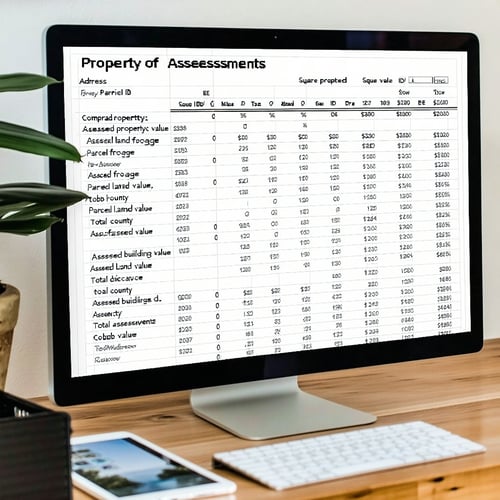Arguing "lack of uniformity" in your Cobb County property tax appeal means asserting that your property is being assessed at a higher value than other, similar properties in your neighborhood. This argument is based on the constitutional principle that all property must be assessed equitably within the same taxing jurisdiction.

Here’s how to construct and present this argument effectively in Cobb County:
1. Identify Truly Comparable Properties
Focus Locally: Search for properties in your immediate neighborhood—ideally on the same street or subdivision, within Cobb County.
Match Key Characteristics: Look for properties that closely resemble yours in:
-
Square Footage (above and below grade)
-
Year Built and Architecture
-
Bedrooms and Bathrooms
-
Lot Size
-
Property Condition as of January 1 of the tax year
-
Features like garages, basements, or pools
Use Official Data Sources: Go to the Cobb County Assessor’s website to find detailed information on other properties’ assessments. Use the property search tool by address or parcel ID.
Important Tip: In a "lack of uniformity" appeal, you’re comparing assessed values, not sales prices (although sales data can support a separate "value" argument).
2. Gather Assessment Data for Your Comparables
For each comparable property:
-
Visit cobbassessor.org
-
Note:
-
Assessed Fair Market Value
-
Assessed Land and Improvement Values
-
Parcel ID
-
Year Built, Square Footage, and Features
-
Record Everything: Save screenshots or print records of each comparable. Keep them organized for presentation.
3. Build a Comparative Analysis
Create a spreadsheet or chart that includes:
| Address | Parcel ID | Sq Ft | Beds/Baths | Assessed Land Value | Assessed Building Value | Total Assessed Value | Value per Sq Ft |
|---|
Calculate the assessed value per square foot for each property and for your own. This metric is especially helpful in highlighting discrepancies.
4. Present Your Argument Effectively
During the Appeal Filing (Online or Paper Form):
-
Clearly state: “This appeal is based on a lack of uniformity in assessment compared to similar properties in my neighborhood.”
At Your Board of Equalization (BOE) Hearing:
-
Start with your claim:
“My property is assessed at a higher value than similar properties in my Cobb County neighborhood, which violates the principle of uniformity.” -
Show your evidence:
Provide your spreadsheet, screenshots, and documentation for each comparable. -
Explain your comparables:
Be ready to explain why the properties are similar and how any minor differences don’t justify large disparities in assessed value. -
State your requested assessment:
Based on the comparable properties, propose a fair assessed value.
Important Tips for Cobb County Appeals
-
Focus on Assessment Value, Not Tax Amount: You're not arguing that taxes are too high, but that the assessed value is inconsistent with similar homes.
-
"Comparable" is Critical: The more alike the properties, the stronger your case.
-
Stay Neighborhood-Specific: Use properties within your same neighborhood or subdivision.
-
Be Prepared for Counterarguments: County staff may point out minor differences. Have responses ready.
-
Photos Help: Bring visuals showing the similarity of properties.
-
You Can Combine with a Value Argument: You’re allowed to also argue that your home’s market value is too high based on sales.
Final Thoughts
If done correctly, a "lack of uniformity" argument can be very persuasive in Cobb County. It shows the Board of Equalization that your property is being treated unfairly compared to your neighbors. Presenting clean, organized, and factual data is key.
Resources for Cobb County Property Tax Appeals
-
Cobb County Board of Tax Assessors
Property search, appeals, forms, and assessment data
-
Tax bill payment and exemption information
-
Georgia Code: O.C.G.A. § 48-5-311
Georgia law on tax appeals and uniformity requirements



